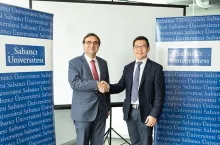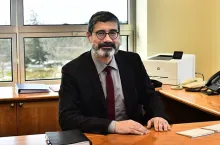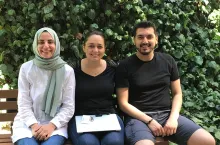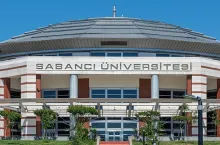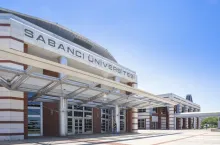04/08/2020
Sabancı University and international research and technology organisation TWI have extended their longstanding relationship to launch the Digital Advanced Manufacturing Innovation Centre (DMIC).

Sabancı University, whose philosophy includes generating leading-edge knowledge, and forming educational and research networks, to create competitive competencies within an international context, will host the new virtual Centre within its Integrated Manufacturing Technologies Research and Application Center (SU-IMC) on its site in Turkey.
A Europe-centric approach is central to the joint venture which aims to engage with the wider innovation community to develop a research portfolio, comprising new collaborative projects that will deepen digital manufacturing technologies and result in the delivery of novel products, systems and services.
Research and development (R&D) will focus on expanding European excellence in advanced composites and related materials, as well as in additive manufacturing of metals and composites, from prototypes through to certified, fully functional parts. Work will be in areas of increasing importance to society, the environment and the economy such as green manufacturing; the sustainability of materials and their re-purposing; hydrogen economy; and smart applications in digitalising processes and products. In doing this, DMIC will be well placed to work closely with TWI’s other Innovation centres and its operations in Athens, Greece, TWI Hellas, which can bring R&D expertise in areas such as data science, artificial intelligence (AI) and systems integration to the new Centre.
Cem Selcuk, Head of Business Development for the TWI Innovation Network said “DMIC will provide a platform for co-developing competitively won, funded projects that serve to facilitate ongoing collaboration between the partners, their innovation networks, SME companies across Europe and TWI’s Industrial Members.”
Tat-Hean Gan, Director of Innovation and Skills, TWI explained further “Both parties are bringing years of experience in technology innovation management to the Centre and this will enable the identification of novel techniques which can enhance production technologies used in digital integrated manufacturing, leading to industrial scale up for successful and sustainable deployment.
Bahattin Koç, Director of SU-IMC, Sabancı University stated “This new Innovation Centre will open up new directions in data-driven digital manufacturing of fully functional metal and composite parts by combing the strengths of the two partners.”
Prof. Mehmet Yildiz, Vice President for Research and Development at Sabancı University further expressed that “By combing their expertise, our two organisations will unify their capabilities in advanced and digital manufacturing to progress state-of-the-art in composite and additive manufacturing technologies, leading to the future training of graduate students and highly skilled personnel through collaborative, multidisciplinary projects.”

